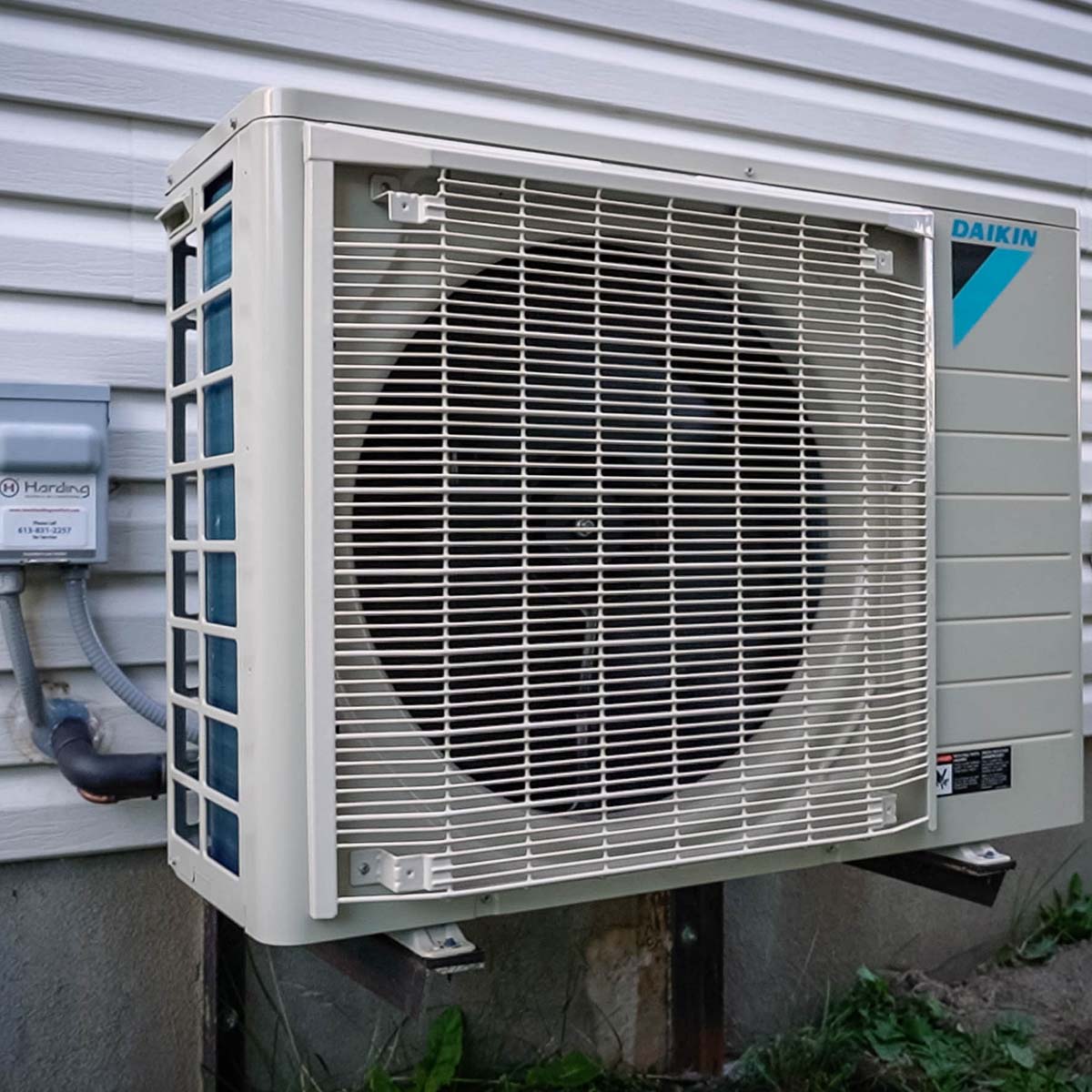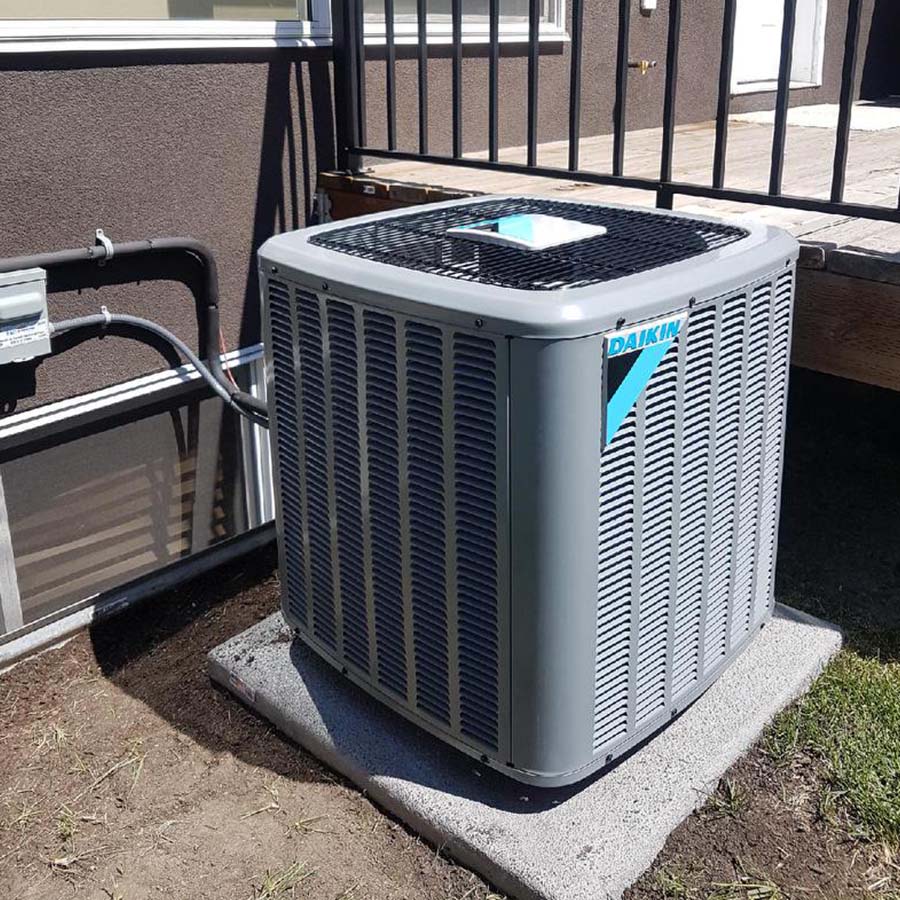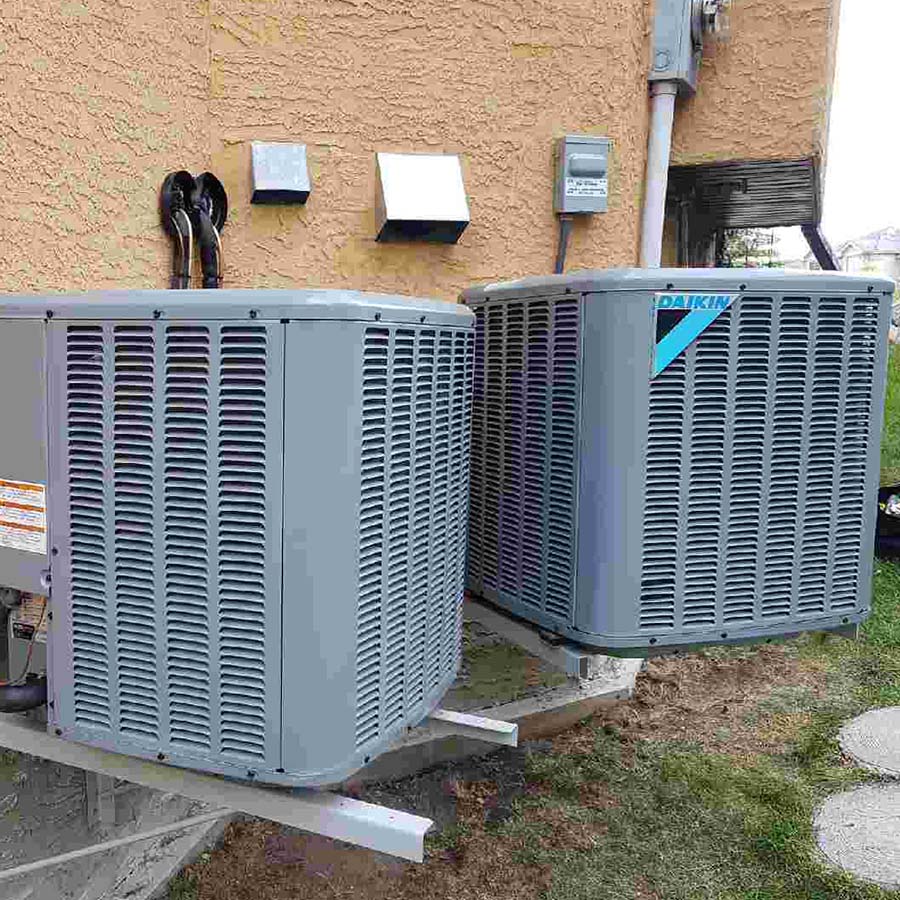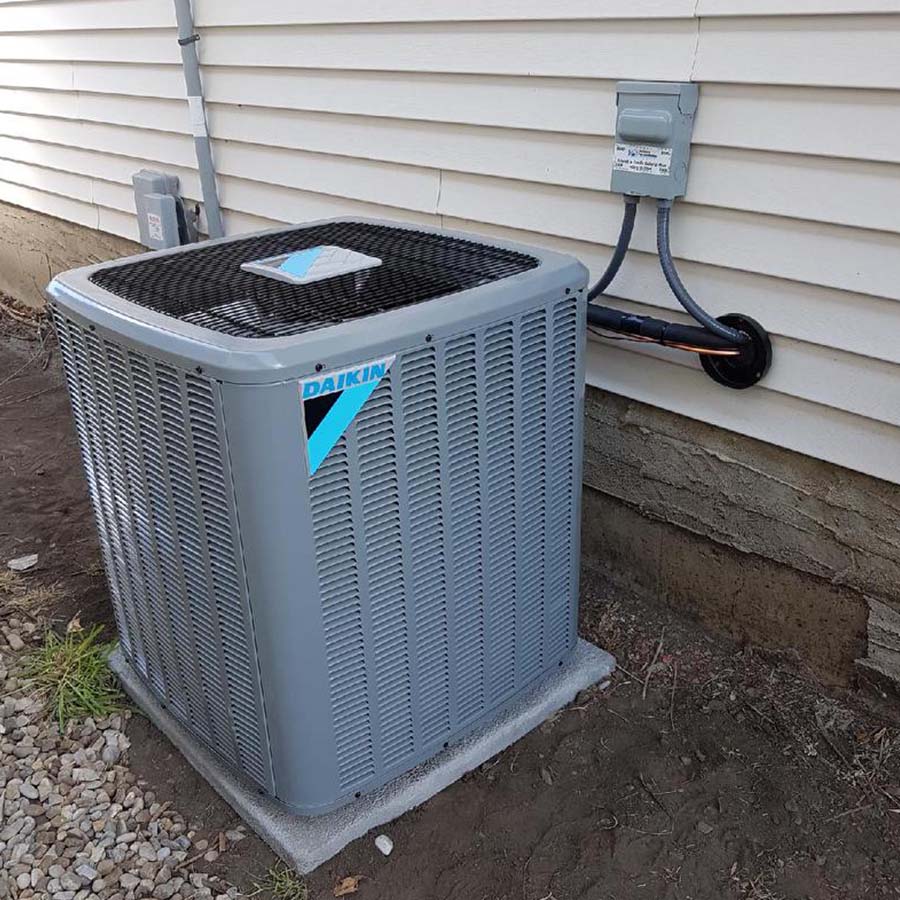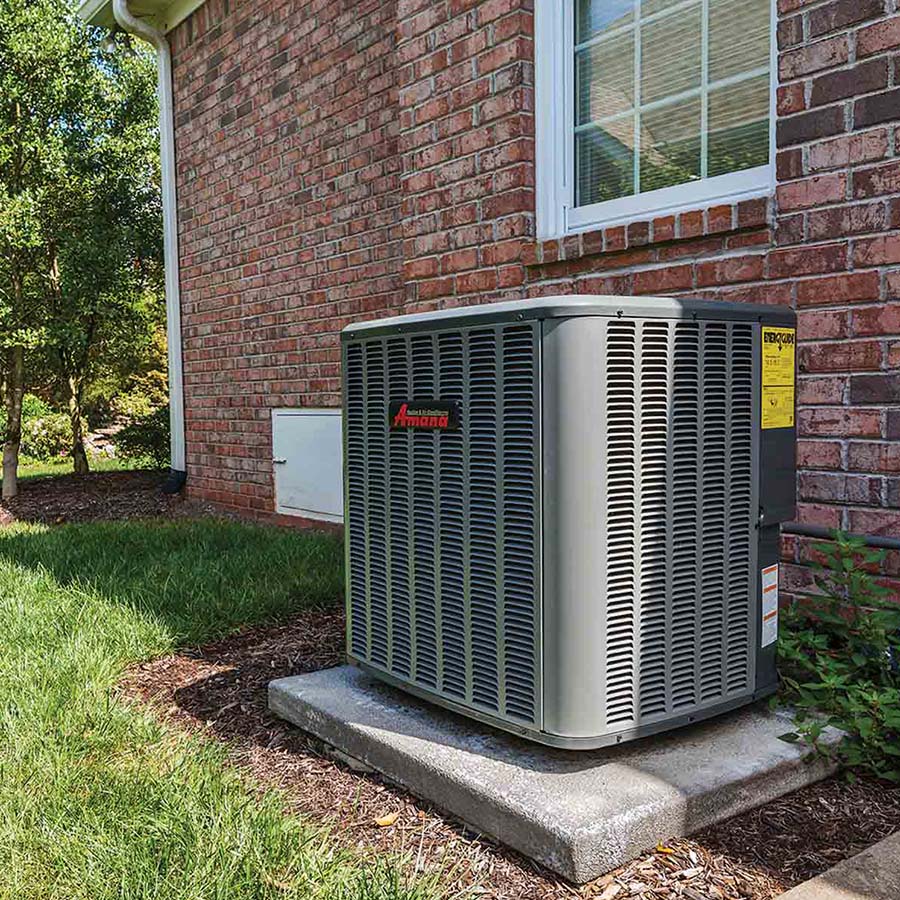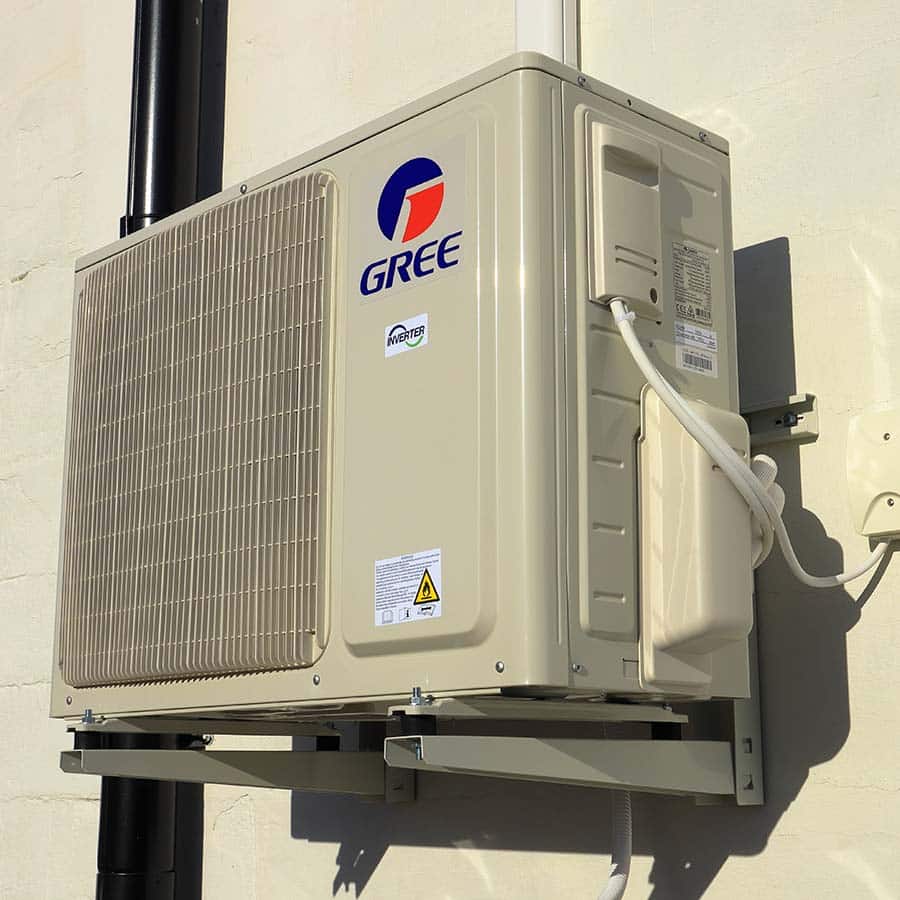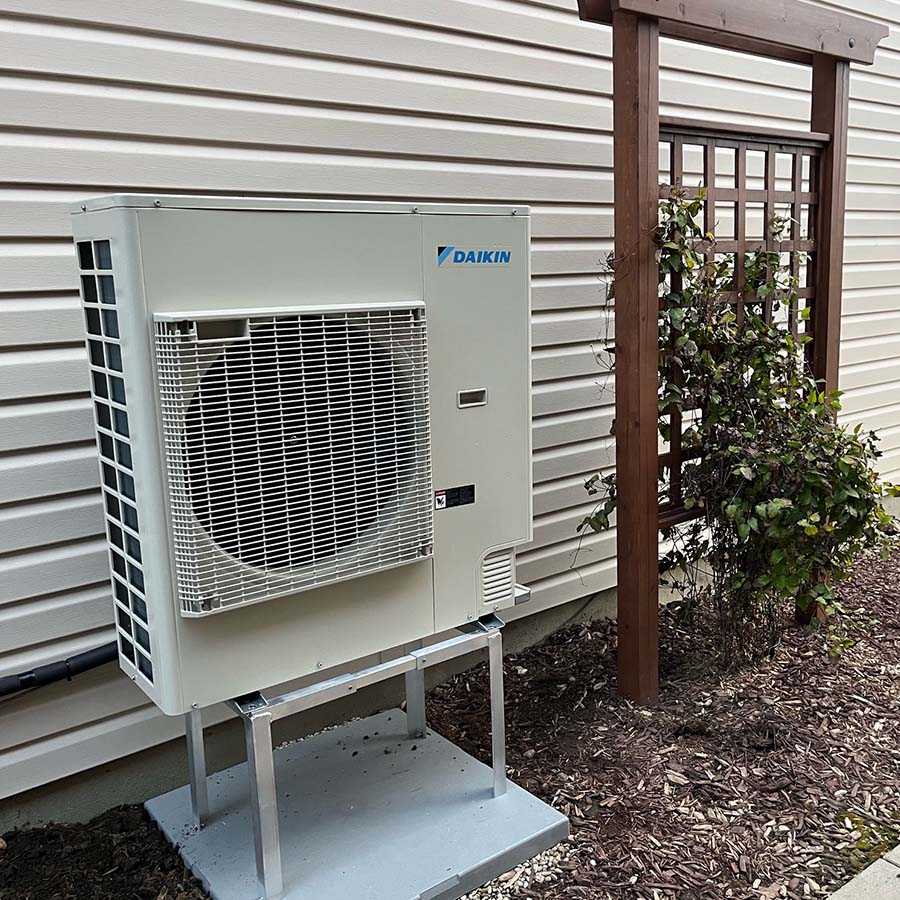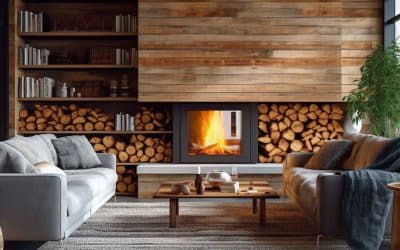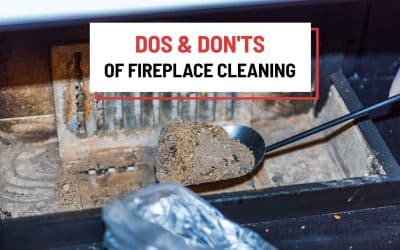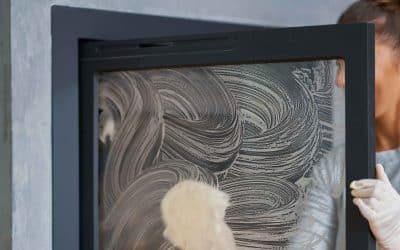Air Conditioner Installation
Ottawa’s Most Trusted Air Conditioner Installation & Replacement Service Since 1994
Team Harding is the most trusted HVAC provider for homeowners and new home construction builders for a reason. We are committed to customer satisfaction, quality workmanship, and fast, reliable service.
When it’s time to replace your air conditioning system, Team Harding will help you decide on a reliable air conditioner that fits your needs and budget!

How to Tell When It’s Time for a New A/C
Are you worried your air conditioner is on the fritz? Do you think it’s almost time to get a new AC? It could be that your AC needs some simple repairs, or it could be time to install a new one. Here’s how to tell:
Age
If your air conditioner is over 15 years old, it may be time to consider a replacement. Older units are less efficient and more prone to breakdowns.
More Frequent Repairs
If you’re calling for repairs frequently or experiencing ongoing maintenance issues with your air conditioner, it could be a sign that it’s at the end of its life.
Increased Energy Bills
Have you noticed a significant uptick in your energy bills despite consistent usage patterns? An inefficient air conditioner tends to consume more energy, resulting in increased utility bills.
Decreased Cooling Performance
If your air conditioner isn’t cooling your home as effectively as it once did, it could indicate underlying issues. Reduced cooling capacity may be a sign of worn-out components, signalling the need for a replacement.
Uneven Cooling
Are certain areas of your home consistently warmer or cooler than others? Uneven cooling throughout your home can be a symptom of an old or malfunctioning air conditioner.
Unusual Noises or Odours
Strange noises or odours coming from your air conditioner are often indicators of underlying problems. These could be due to a range of issues. Contact us for a professional inspection.
The Right Air Conditioner for Your Home
If you’re replacing an existing air conditioning system, you don’t have to replace it with the same type of air conditioner. Another type could better suit your needs. When installing a new air conditioner, it’s an ideal opportunity to reassess which system is the best fit for your home.
There are 3 main types of air conditioners to consider:
Central Air Conditioning
Central air conditioners are among the most common cooling systems found in homes today. They operate by using your home’s existing ductwork and furnace to cool and distribute air throughout your living space via vent registers. This system typically consists of an outdoor condensing unit linked to an indoor coil mounted within your furnace ducting. If your home is already equipped with ductwork, central air conditioning is often the most suitable option for you.
Ductless Air Conditioning
Ductless air conditioners offer a versatile cooling solution that doesn’t require pre-existing ductwork in your home. Instead, they utilize one exterior condensing unit connected to one or more interior units mounted on walls or ceilings in individual rooms. Ductless systems provide homeowners with the flexibility to control the climate of each room independently, catering to individual preferences throughout the house. If your home lacks ductwork or you desire room-specific temperature control, opting for a ductless air conditioner may be the ideal choice.
Heat Pumps
Heat pumps come in both ducted and ductless models. Ductless heat pumps are different from ductless air conditioners in that they can both cool and heat your home, all in a single system. If you have existing ductwork, a ducted heat pump could be the right choice. While a ductless heat pump is the better option if you don’t already have ductwork in your home. Heat pumps are highly efficient and can lead to significant energy and cost savings year-round.
Flexible Air Conditioner Financing
Team Harding is proud to offer affordable and transparent financing options through FinanceIt. Whether you’re a homeowner, a business owner or landlord, HVAC financing is available to you.
With Team Harding’s financing options, you can expect:
- A short and simple application process
- Fast credit decisions
- Low monthly payments with competitive interest rates
- No down payments, no annual fees, and no prepayment penalties
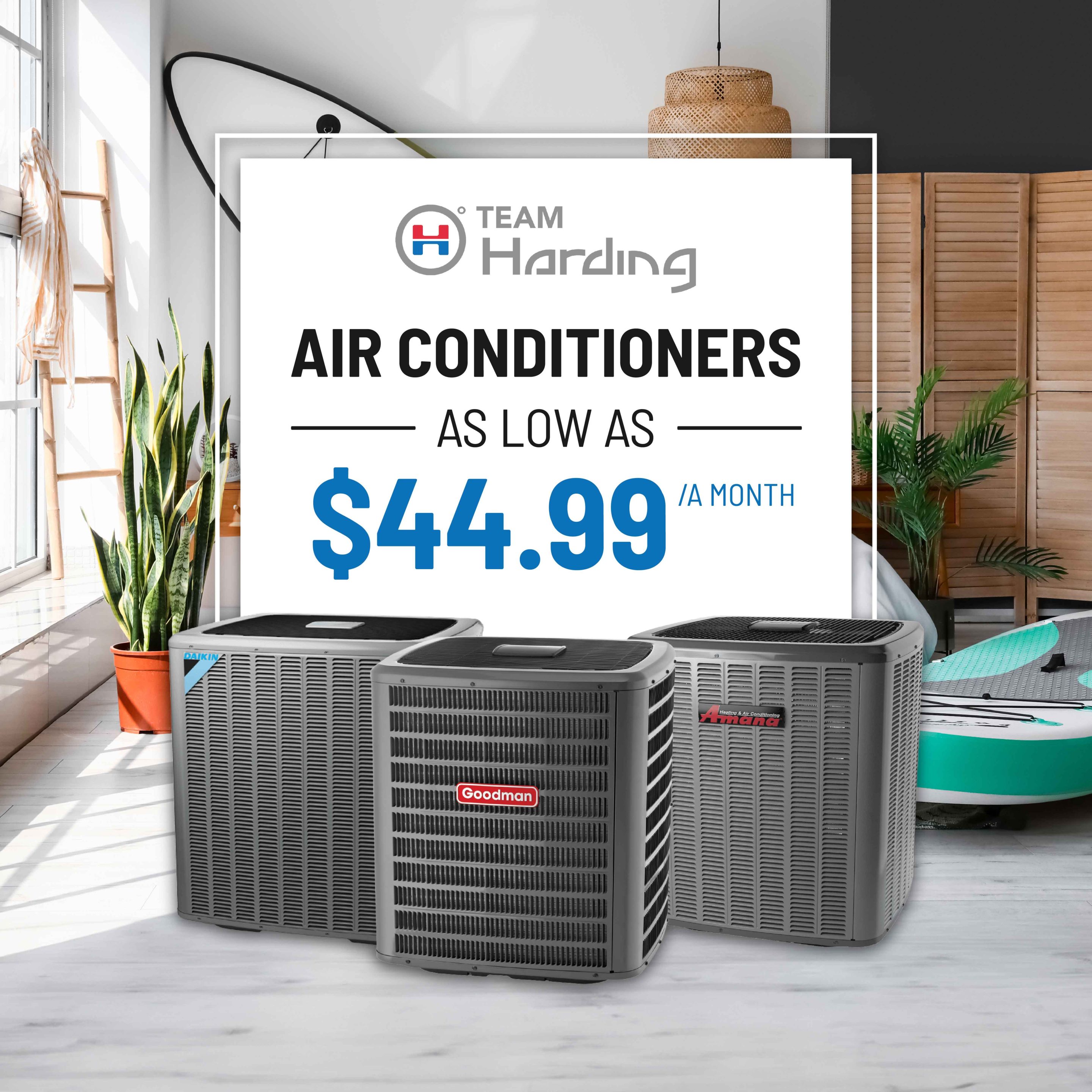
Get a Free No-Obligation Sales Quote
Considering upgrading your air conditioning system? Contact Team Harding for a free sales quote!
Call us at (613) 831-2257 or complete the form below and one of our home comfort advisors will be in touch with you shortly.
"*" indicates required fields
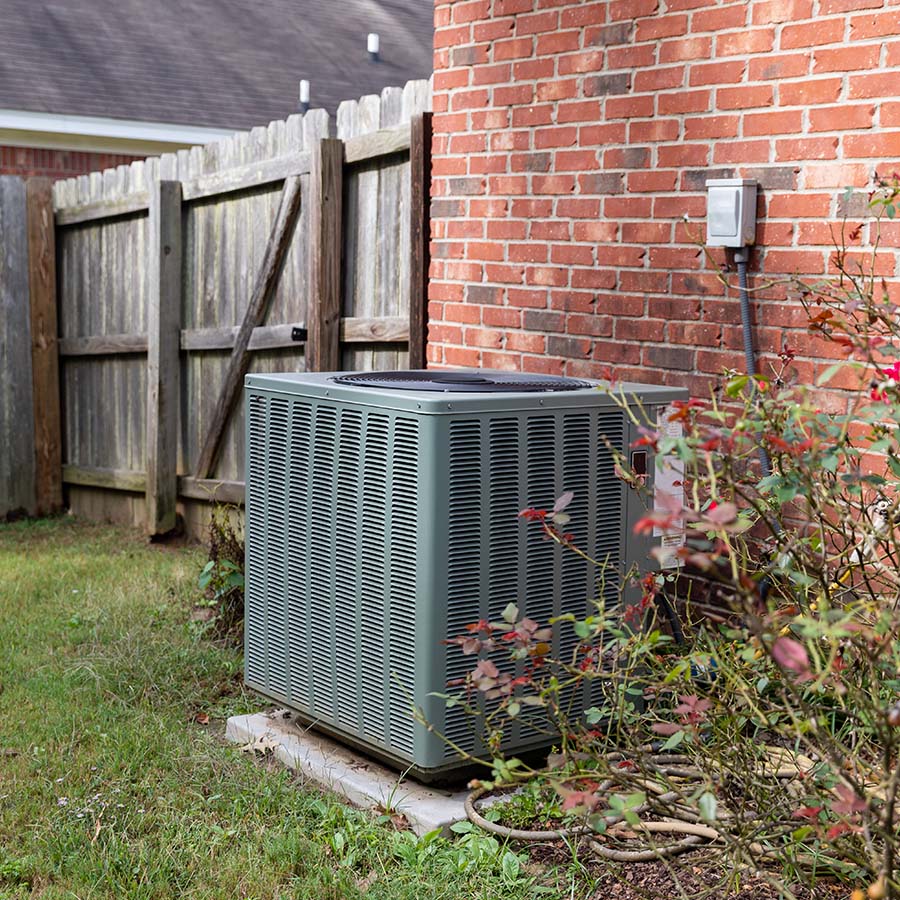
How Long Does an Air Conditioner Typically Last?
The lifespan of an air conditioner can vary depending on factors such as the type of system (central, ductless, or heat pump), the quality of the unit, and the level of maintenance it receives. On average, air conditioners can last anywhere from ten to twenty years.
However, homeowners play a significant role in how long their AC actually lasts. By implementing regular maintenance practices and promptly addressing any issues that arise, you can help your AC last longer.
Here are some tips to help prolong the life of your air conditioner:
Change the filter regularly
Ensure your air filter is changed at least once every 60 days to maintain optimal airflow and prevent strain on the system.
Schedule annual preventive maintenance
Schedule maintenance with a qualified HVAC technician to keep your air conditioner in peak condition.
Take care of repairs promptly
If you notice any signs of malfunction or inefficiency, such as strange noises, reduced cooling performance, or unusual odors, don’t hesitate to call for professional repair services.
Maintain the outdoor unit
Keep the outdoor unit of your air conditioner free from dirt, debris, and vegetation. Regularly clean the unit and ensure proper airflow around it to optimize performance and prevent overheating.
Keep the indoor unit clean and clear
Maintain cleanliness around indoor units to prevent dust buildup and airflow restrictions. Keep the area around indoor units free of clutter to ensure proper ventilation and airflow.
Factors That Impact the Cost of a New AC
When it comes to AC installation, prices are always top of mind for homeowners. There are a variety of things that affect the overall cost of a new cooling system. The different factors that contribute the total cost of an air conditioner include:
Energy efficiency
A more energy-efficient model will cost more upfront but save you money in energy bills. A less energy-efficient model will be cheaper but cost you more in the long run.
The type of system
The type of AC unit affects the price. For example, a ductless mini-split AC and a central air conditioner will vary in price.
Necessary ductwork
If you buy a central air conditioner and your home isn’t equipped with the necessary ductwork, you’ll have to spend more to renovate your home to accommodate the unit.
Home system and size
The size of the air conditioner you buy will depend on the size of your home. Typically, the more square footage, the bigger and more costly the air conditioner.
The Best SEER Rating for an Air Conditioner
The SEER (Seasonal Energy Efficiency Ratio) is a simple equation created to calculate the performance and energy efficiency of your cooling system. To determine your air conditioner’s SEER rating, divide the total energy required of an AC by the total electrical energy required to run your system during the same period. Essentially, the higher the SEER rating, the less energy your air conditioner consumes.
Most new air conditioners will come with a SEER rating of around 16, which is good. Anything above a 16 rating is great and will save you a lot of money on cooling. When shopping for your new air conditioner, aim to buy a unit with at least a 16 SEER rating.
The Daikin Fit Air Conditioner
It’s important to do your research on which model of air conditioner you should install based on your home’s needs. Since it’s an investment in your home, you want to choose from the top units. The Daikin FIT system is one of the best options. It’s one of the leading air conditioners in efficiency, size, and power. There are several reasons why so many homeowners opt for the Daikin FIT, including:
- High-efficiency
- Cost-effective
- Powerful, variable-speed fan
- Quieter than other systems
- Compatible with Daikin One+ smart thermostat
- Corrosion coating to protect from outdoor wear and tear
- Compact and small, ideal for small homes and cottages
- Designed and built by a world-leading HVAC manufacturer
LATEST NEWS
Cottage Fireplace Makeover Ideas
Looking to make your cottage cozier? If you have a fireplace in your cottage already, these...
The Dos & Don’ts of Fireplace Cleaning
You may have read our last blog about how to clean the glass on your fireplace. This one offers a...
How To Safely Clean Fireplace Glass
Fireplace maintenance is crucial to keeping your fireplace working efficiently and safely. In...


